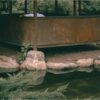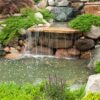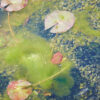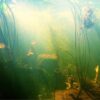Which plants should I choose for my pond or garden pond?
Plants are a crucial component of a successful pond or water garden. It is important to understand which plants will work best in your particular pond or garden pond. The goal is to have one’s plants live and thrive without fail.
Making the pond of your dreams is not just a matter of how you design or select the right pond filter, or the care requirements. It is also about the plants you choose to grow in it. The right plants can make your pond look spectacular, welcome wildlife and make your pond a desirable habitat for both birds and butterflies.
This article will help you determine which types of plants are best to a garden pond.
Generally speaking, it is essential to know what type of pond you actually want to deploy in your garden. You will have the choice between natural, ornamental or plant ponds on the one hand. And a mini pond, or even a terrace pond, a biological pond, on the other hand.
Many people often find themselves in a real dilemma when choosing plants for their pond. They don’t always know which plants to choose or which plants are essential or prioritise others.
What are the criteria to consider when choosing plants for a garden pond?
The development of a garden pond is a project in itself. When choosing plants, several parameters must be taken into account. Among the essential criteria, we can mention :
- The nature of plants: these wonders of nature are not equal. Indeed, each plant has specific and indispensable properties for the development of a garden pond.
- The density of the area
- The role of plants: in nature, each plant has its role to play. That’s why there are aquatic plants and many others.
In general, the plants in the pond provide a suitable environment for humans. Their arrangement must allow a harmonious functioning of all the biological resources of the basin.
Why are Aquatic Plants Essential?
Aquatic plants are the most important components of a garden pond, as they provide water and oxygen. They ensure that the water in the pond is always clear. You can choose a pond with plants only or a mixed solution that requires specific equipment. In such a situation, one must install certain important equipment during the installation of the garden pond.
The use of devices such as pumps, mechanical filters, and UV filters is guaranteed to keep the pond water clear and of excellent quality for plants’ harmonious development. The pump allows an adequate circulation of the pond water while the filters prevent the proliferation of specific organisms that are harmful to the pond’s biological balance.
That said, among the most indispensable aquatic plants, we can mention :
Oxygenating plants such as hippuric Vulgaris, myriophyllumaquaticum or Brasilia, Potamogetonnatans, and Elodeacanadensis. With their purifying and particularly oxygenating virtues, these plants contribute to the balance of the water. Still called submerged plants, they capture some of the water’s nutrients and release oxygen favourable to aquatic fauna’s growth.
However, suppose the pond contains certain animals such as Koi or Love Carp. In that case, it is essential to prevent these herbivores from feeding on the oxygenating plants by installing a fence or a demarcation zone to contain the carp.
In addition to these oxygenating plants, we also have emergent plants that serve as a refuge for aquatic fauna. They have a purifying function in that they have the capacity to capture certain minerals from the water, such as phosphorus or nitrate.
Among the essential aquatic plants, how can we not mention water lilies, pontederiacordatan, Caltha palustris, water iris, typha, Lythrum salicaria, menthaaquatica, orontiumaquaticum or Equisetum hyemale, whose virtues within a garden pond are no longer to be proven? It is important to know that certain plants are recommended over others, depending on the planting area.
Indeed, some plants are better suited to grow in marshy areas, on the surface or the pond’s banks. If you are not a plant expert, seeking expert advice will allow you to have an ecological garden pond with excellent natural properties.










